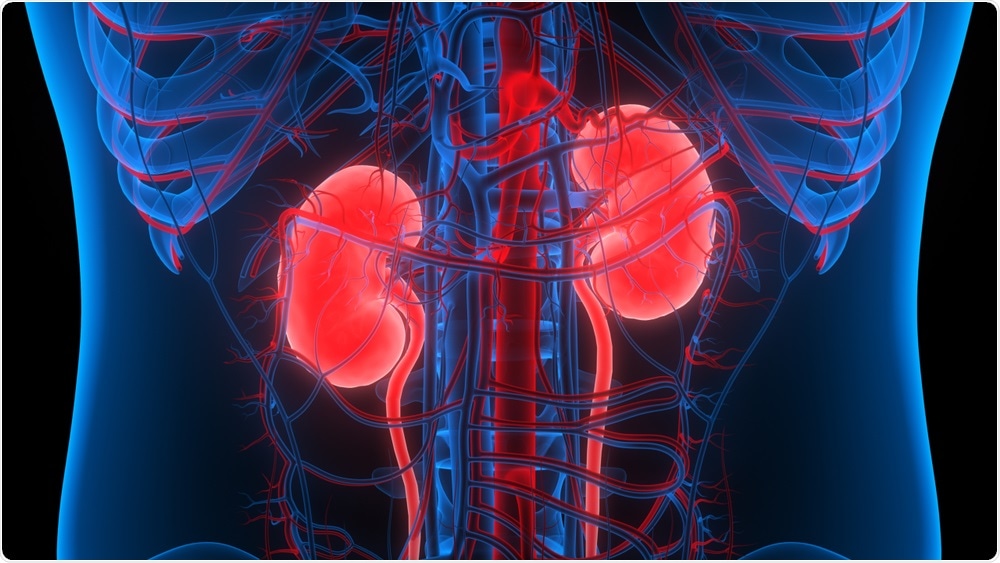New research in mice published recently in eLife suggests that studying protein modifications in the kidneys as people age, as well as gene transcription into proteins, will help provide a complete picture of the age-related processes that occur in these organs.

Kidneys. Image Credit: Magic mine/Shutterstock.com
Many changes occur in the body because of aging, including changes in vital organs like the kidneys, which operate less effectively later in life. The majority of reports on age-related changes in the kidneys have focused on gene transcription, the mechanism by which a segment of DNA is copied into RNA.
The current research proposes that using this method in combination with the examination of protein modifications provides a greater understanding of age-related changes in the kidney and could point to new methods for treating age-related kidney dysfunction.
Physiological changes in kidney function during aging are well documented, but little is known about the underlying molecular processes that drive this loss of function. Many previous studies of these physiological changes have looked at the transcription of genes into proteins by measuring messenger RNA (mRNA), but we wanted to see if we could gather more insights by combining this approach with studying protein levels in the kidney.”
Yuka Takemon, Study First Author and Research Assistant, Jackson Laboratory, Bar Harbor, Maine
Takemon is currently a Ph.D. student at the University of British Columbia’s Michael Smith Genome Sciences Centre in Canada.
Takemon and collaborators examined age-related variations in kidney function in 600 genetically diverse mice in their research. Changes in proteins and mRNA were also measured in kidney samples from around one-third of the animals.
They found an age-related pattern of modifications in both proteins and mRNA in mice, indicating that the animals had an increase in the number of immune cells and inflammation in their kidneys, as well as a reduction in mitochondrial activity, which generates energy for the cells.
But not all of the protein changes coincided with mRNA changes, implying that certain protein changes occur after gene transcription into RNA. This could imply that as people age, their kidneys become less effective at creating new proteins, or that proteins are broken down more rapidly.
If further research proves this, it may imply that interventions or therapies that facilitate protein building or slow protein breakdown could be helpful in the treatment of aging-related kidney diseases.
Our study suggests that mRNA measurements alone provide an incomplete picture of molecular changes caused by aging in the kidney. Studying changes in proteins is also essential to understanding these aging-related processes, and for designing possible new approaches for treating age-related diseases.”
Ron Korstanje, Study Senior Author and Associate Professor, Jackson Laboratory
Source:
Journal reference:
Takemon, Y., et al. (2021) Proteomic and transcriptomic profiling reveal different aspects of aging in the kidney. eLife. doi.org/10.7554/eLife.62585.